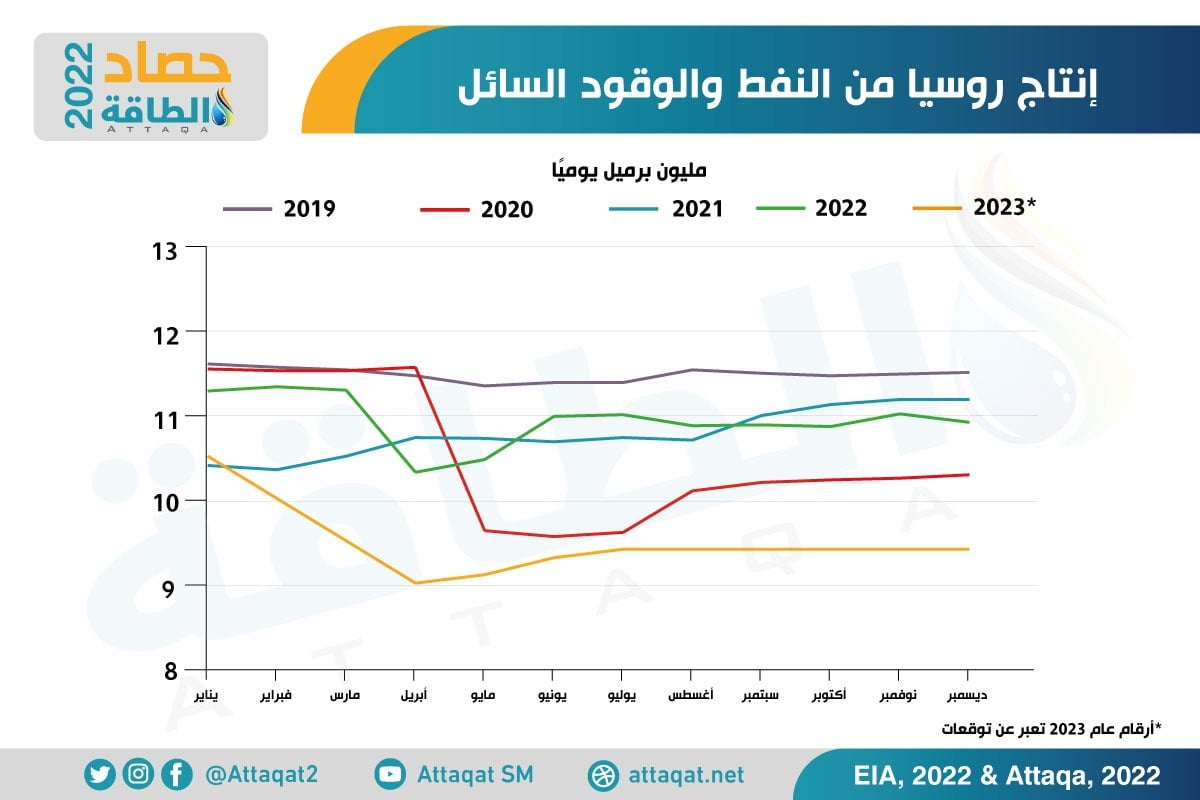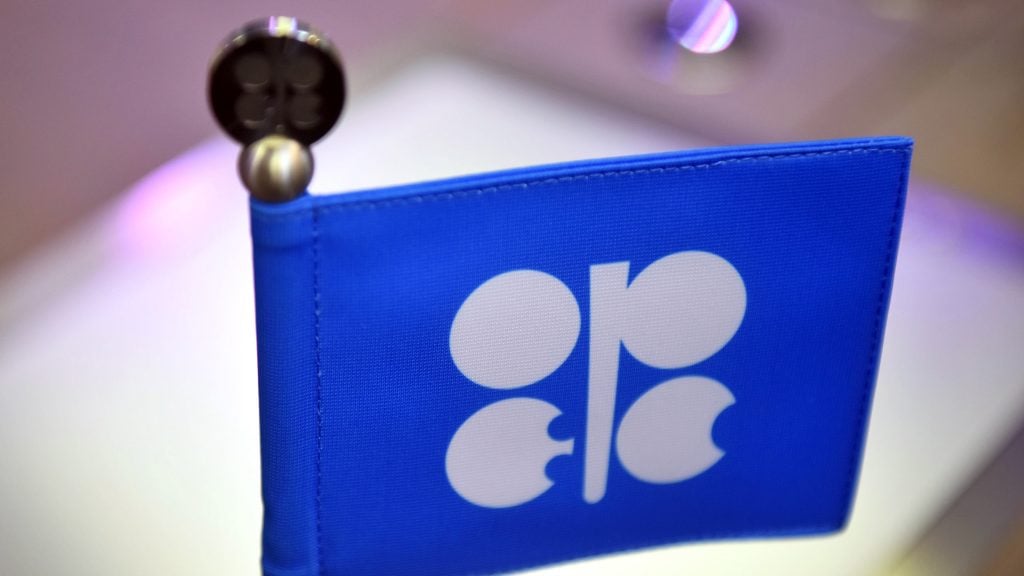Today, Friday, February 10 (2023), Kremlin spokesman Dmitry Peskov revealed that Russia held consultations with several countries in the OPEC + coalition regarding the decision to reduce Russian oil production.
This denies previous statements, issued today, Friday, February 10 (2023) – also – that Moscow decided to cut production without consulting with the coalition countries.
Peskov told reporters that the Russian side consulted with several OPEC+ members before voluntarily deciding to cut production starting from March (2023), refusing to clarify the purpose of the decision, according to what was monitored by the specialized energy platform, quoting the Russian TASS agency.
While reports indicated that Russia did not officially consult with the OPEC + alliance, and decided to cut production on its own, according to statements by a Russian government official, today, Friday, February 10.
Voluntary decision
Russian Deputy Prime Minister Alexander Novak confirmed that Russia’s decision to cut oil production by 500,000 barrels per day in March was voluntary, and there were no consultations with other countries.
He said in press statements: “This is a voluntary downgrade, and no one was consulted about it,” according to the Russian news agency TASS.
A source indicated that Russia made the decision to cut oil production in March on its own, and there were no consultations with OPEC+.
The source said, “The decision was taken by Russia unilaterally and did not consult with OPEC +,” indicating that Moscow intends to reduce oil production by 500 thousand barrels per day from current production levels, and not from the share of OPEC +.
On the other hand, sources confirmed that the OPEC+ alliance is not considering holding an unplanned meeting in the wake of Russia’s announced commitment to cut oil production by 500,000 barrels per day in March, TASS news agency reported.
reduce production
Earlier today, Friday, February 10 (2023), Russian Deputy Prime Minister Alexander Novak surprised the markets with Moscow’s plans to voluntarily cut production by 500,000 barrels per day, starting in March (2023).
The OPEC + alliance continues the policy of reducing production, which it announced in late 2022 by about two million barrels per day, which will continue until the end of 2023.
In this regard, Bob McNally, president of Rapidan Energy, an energy consultancy, said that many market observers expected some losses in production since the imposition of the European embargo and the price ceiling, and Moscow may only be trying to present the mandatory cut as a voluntary option, according to Bloomberg.
He doubted that Russia’s OPEC+ partners were surprised by the decision, expecting no change in production policy.
Meanwhile, commodities analyst at UBS Bank Giovanni Stanovo pointed out that there is no one to fill the supply gap caused by the Russian oil production cut in the short term.
He said, “OPEC + may increase its share or resort to canceling the policy of reducing production later this year … but there is no pressure to change anything in terms of production at the present time.”
price ceiling
Russian Deputy Prime Minister Alexander Novak said that starting now, Russia can sell its oil to foreign markets, but it will not be bound by price restrictions imposed by Western countries.
He continued, “When making further decisions, we will act based on the development of market conditions.”
He added that the Russian oil companies did not request permits or permission to conduct deals to supply Russian oil or oil derivatives under the price ceiling imposed by a number of Western countries, according to what was published by the Russian news agency TASS.
“No,” he said. “We have not received such requests.”
And on December 5 (2022), the European ban on seaborne exports of Russian oil entered into force.
The Group of Seven countries, the European Union and Australia agreed to impose a ceiling on the price of Russian oil at $60 a barrel.
The same countries also imposed similar restrictions on Russian oil derivatives at $100 for refined derivatives and $45 for lower-quality products, which took effect on February 5 (2023).
On December 27 (2022), Russian President Vladimir Putin signed a decree implementing economic measures in response to the imposition of a cap on the price of Russian oil and oil derivatives.
Under the decree, Russia prohibits the sale of its oil to entities that impose a price ceiling for oil and oil derivatives, and it enters into force on February 1 (2023) until July 1 (2023).
The chart below – prepared by the specialized energy platform – shows the development of Russian oil production, during the years from 2019 until the forecast for the current year (2023):

related topics..
Also read..

Leave a Reply